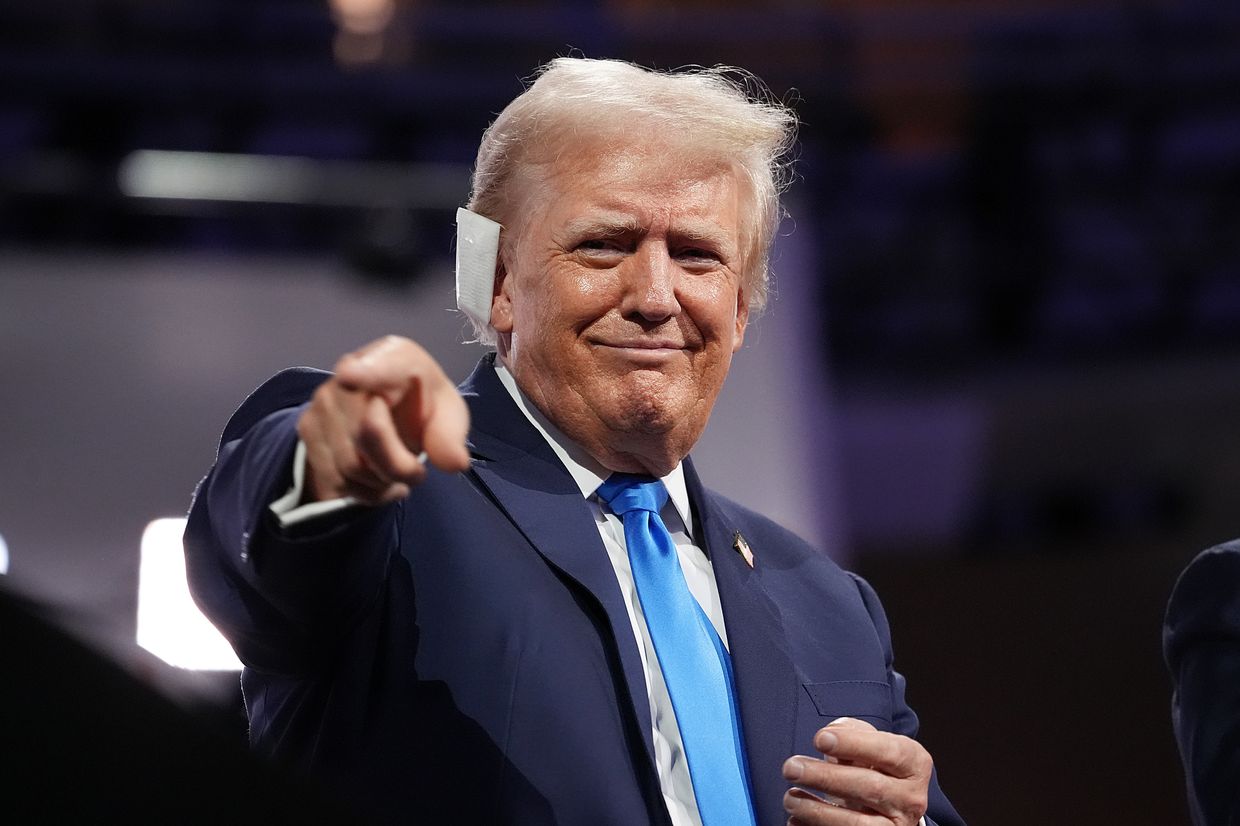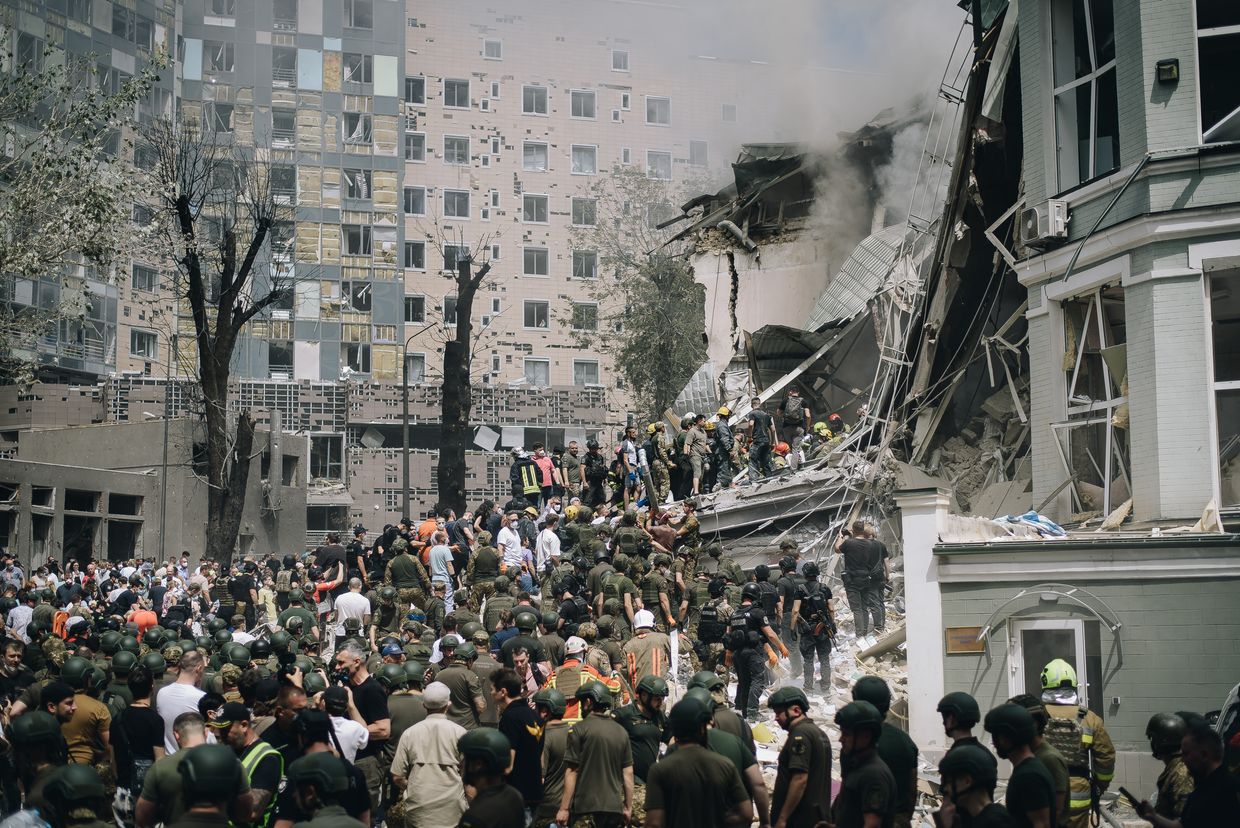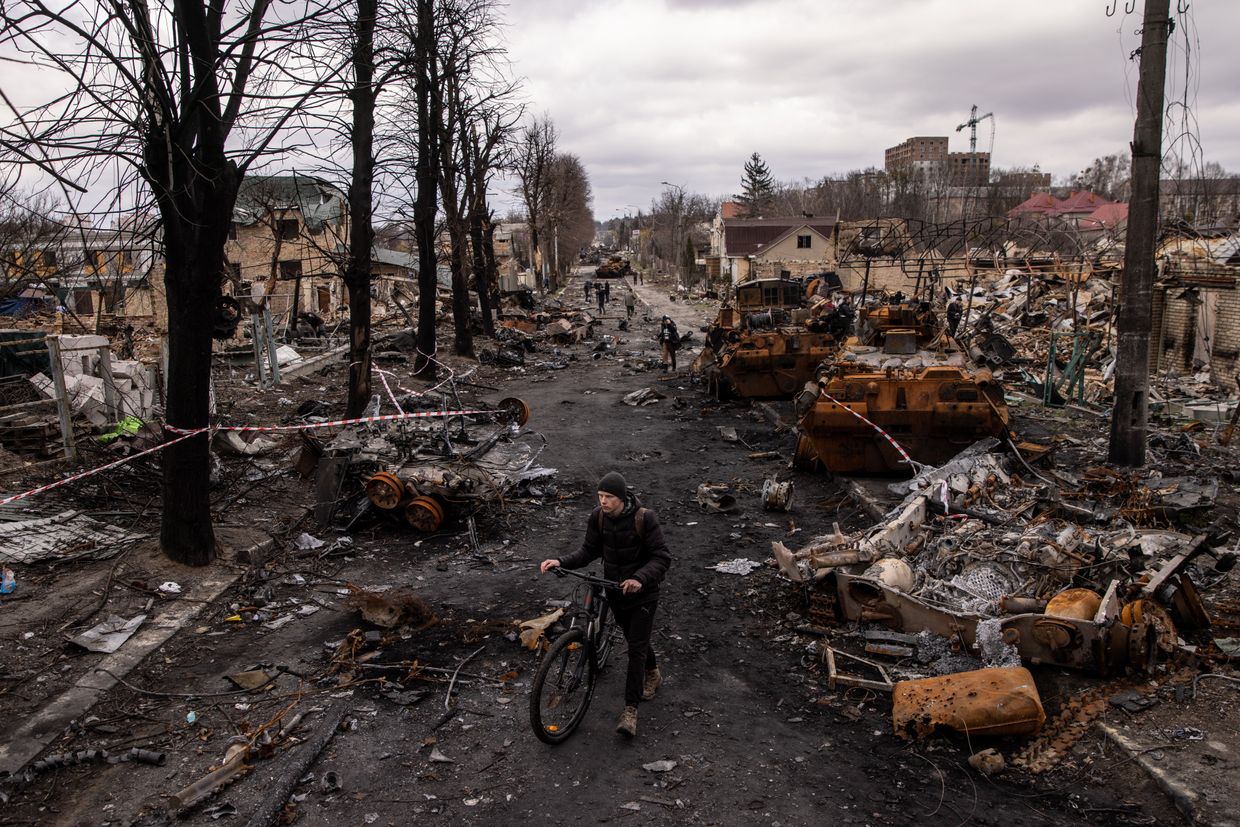Opinion: Something is rotten in the state of Russian arms industry

Russian military vehicles parade during the Victory Day Red Square Parade on May 9, 2023 in Moscow, Russia. (Contributor/Getty Images)

Khrystyna Holynska
Russia’s arms industry and its export capabilities have long been, as Russian President Vladimir Putin put it, a point of national pride. Even after launching its full-scale invasion of Ukraine in February 2022, Russia claims to be able to meet growing domestic demand and continue arms exports.
State-sponsored propaganda promotes the prowess of Russia’s military-industrial complex to reassure both domestic and international audiences of Russia’s ability to not only sustain its war effort in Ukraine but also further leverage its arms sales for geopolitical influence.
These statements are seemingly designed to project confidence that Russia can outlast the West. At the same time, though, these messages starkly contrast with more pessimistic assessments appearing in both international and Russian media.
Russian political and military leadership consistently reports on the “successes” in the import substitution programs and new developments that improve the existing military systems based on real-life combat experience. Throughout 2023 and into early 2024, the Russian state-run arms exporter Rosoboronexport reported signing new contracts, noting stable international interest in Russian weaponry and government approvals of new systems for export. Reports of declining arms sales, such as the Stockholm International Peace Research Institute 2023 estimates, are dismissed as faulty, with officials claiming that not all sales are disclosed due to sanctions. Even acknowledged declines are portrayed as temporary setbacks, which, it is implied, will be followed by another boost in exports after the war.
A recent shake-up of Russian military leadership, including the dismissal of Defense Minister Sergei Shoigu and his deputies and the subsequent series of arrests of Russian military leaders on corruption charges, might signal dissatisfaction with the current state of affairs at the highest level. For the second year in a row, Russia’s traditional Victory Day parade featured only a limited display of military might.


Deepening ties with North Korea, highlighted by Putin’s unusual visit to Pyongyang, is believed to be an effort to replenish Russia’s depleted arsenal. Reports on Russia’s increasing reliance on outdated weaponry pinpoint its struggles with meeting even domestic demand. Some military systems Russia uses in Ukraine have been criticized for their poor performance. Russia’s credibility has been questioned as it failed to live up to the promise of producing advanced military systems, such as the Su-75 “Checkmate” or MiG-35. The nation, once a major arms exporter, is now reportedly seeking to secretly buy back weapons from former customers as well as purchase second-hand Western machinery from China. Claims of successful import substitution are harder to maintain, given the evident struggles to implement it in sectors such as civilian aviation, where the delivery schedules are repeatedly shifted.
Pessimistic assessments of Russia’s arms industry have started to surface even within tightly controlled Russian media. Experts in Russia acknowledge difficulties with maintaining relationships with historical recipients of Russian weapons. Prioritizing domestic needs, Russia reportedly failed to deliver arms to long-standing customers such as India and Armenia.
Some countries are weighing the benefits of maintaining their ties with Russia against the financial and reputational costs of continuing to do business there. China and India are diversifying their arms purchases away from Russia. Moreover, China is perceived as seeking to improve its relations with the U.S., which is seen as a major blow to Russia-China cooperation.
Despite a history of cooperation and presumed continued interest and loyalty, countries like Vietnam and Algeria are diversifying their suppliers and negotiating arms transfers with other countries, such as Turkey. Russia is fighting to save these relationships, employing significant diplomatic efforts, including a notable visit by Putin to Vietnam. But it’s becoming a hard sell. Egypt is allegedly conceding to persuasion from the U.S. and considering other partnerships.
Similar trends are observed in even former Soviet republics. Kazakhstan, where Russian arms constituted over 90 percent of total imports from 2019 to 2023, has been looking for new arms suppliers to diversify its acquisitions. While some Russian commentators remain hopeful about continued military-technical cooperation, citing, in particular, Kazakhstan’s decision not to purchase Rafale fighter jets from France, Russian media repeatedly accuses Kazakh leaders of covertly supporting Ukraine and seeking international backing to distance itself from Russia.
Experts inside Russia recognize these worrying trends. They warn of long-term consequences, including challenges in seeking to win back lost customers. They’ve also criticized Russia’s attempts to keep India and China as customers by using technology transfers, such as licensing the production of Russian-designed fighters or tanks locally. Some Russian publications argue that India and China will use Russian developments to enhance their own military industries at Russia’s expense. As the Russian government admits the shortage of 160,000 workers in military factories, experts in Russia also predict a loss of up to 40 percent of Russia’s research and engineering capabilities due to reduced arms sales revenue.
Overall, Russia is still likely doing better than anticipated in some critical ways, such as in much-needed artillery shell production. and has found ways to close some other production gaps. But with NATO intensifying support for Ukraine, Russia may not be able to indefinitely sustain the losses of material. In this war of attrition, one of these issues might ultimately become a straw that will break Russia’s back.
Editor’s Note: The opinions expressed in the op-ed section are those of the authors and do not purport to reflect the views of the Kyiv Independent.












